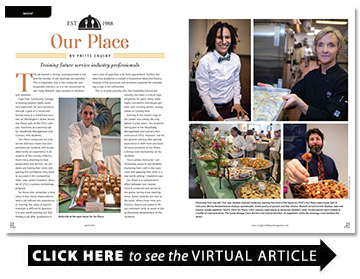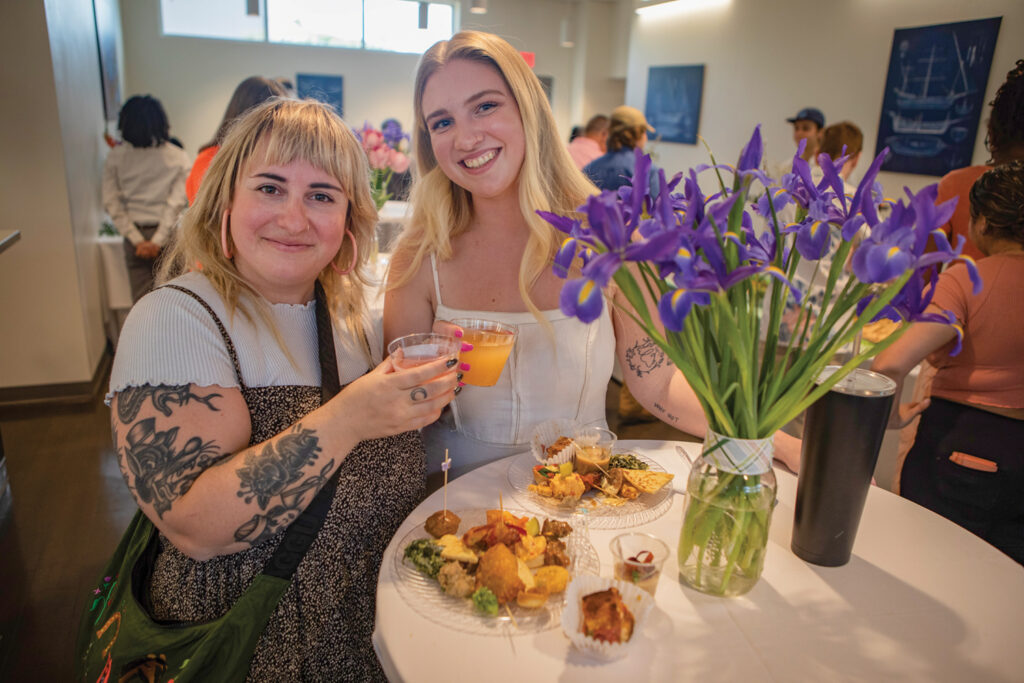Our Place
Training future service industry professionals
BY Fritts Causby
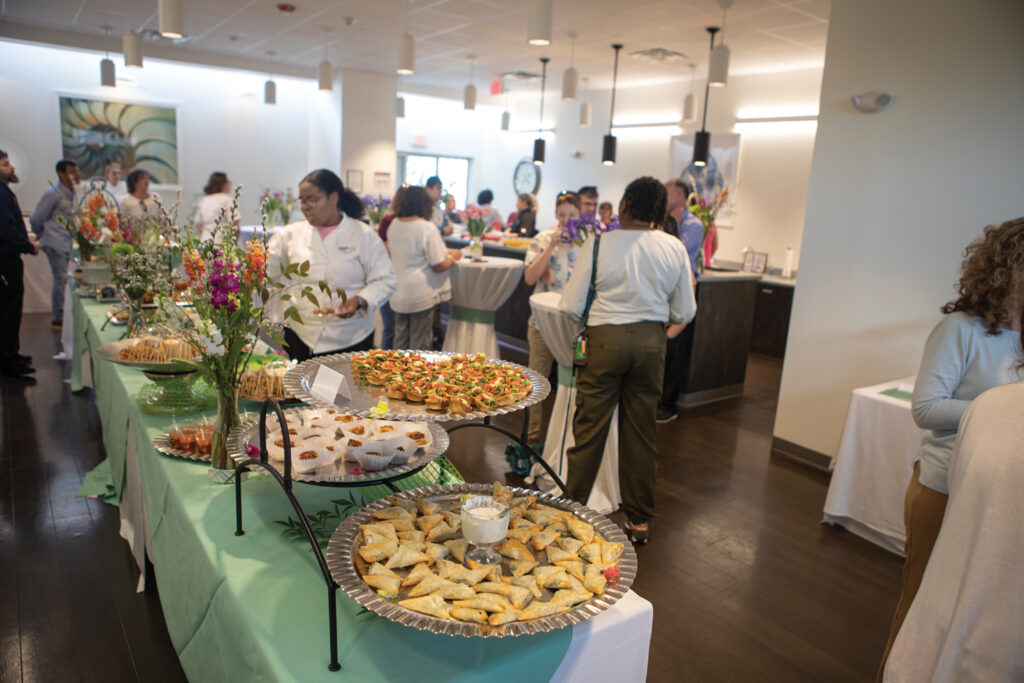
The job market is strong, unemployment is low, and the number of job openings are plentiful. This is especially true in the restaurant and hospitality industry, as it is not uncommon to see “Help Wanted” signs posted on windows and websites.
Cape Fear Community College is helping prepare highly qualified applicants for such positions through a gem of a restaurant tucked away in a waterfront location on Wilmington’s Water Street. Our Place, part of the CFCC campus, functions as a learning lab for Hospitality Management and Culinary Arts students.
“Our Place restaurant not only serves delicious meals but also provides our students with invaluable hands-on experience in all aspects of the culinary industry. From menu planning to food preparation and service, our students are honing their skills and gaining the confidence they need to succeed in this competitive field,” says Jaime Chadwick, director of CFCC’s culinary technology program.
For those who remember a time when it was nearly impossible to land a job without any experience or training, the value of apprenticeships is difficult to question. It is also worth pointing out that finding a job after graduation in one’s area of expertise is far from guaranteed. Further, the idea that academia is rooted in theoretical ideas and history instead of the processes and practices required for completing a task is not unfounded.
This is at least partially why the hospitality/restaurant industry has been a critical steppingstone for years. Many older, highly successful individuals got their start washing dishes, busing tables or running food.
Starting at the lowest rung on the ladder was simply the only option in prior years. The students taking part in the Hospitality Management and Culinary Arts curricula at CFCC, however, can hit the ground running after gaining experience in both front and back of house positions at Our Place, a dining room exclusively run by students.
“As a culinary instructor, I am immensely proud to see students mastering their craft in the classroom and applying their skills in a real-world setting,” Chadwick says.
Our Place is a collaborative effort between two classes. Food is produced and served to the public during class meeting times. Some students are new to the tasks; others have more proficiency. Guests are asked to fill out comment cards to assist in the professional development of the students.
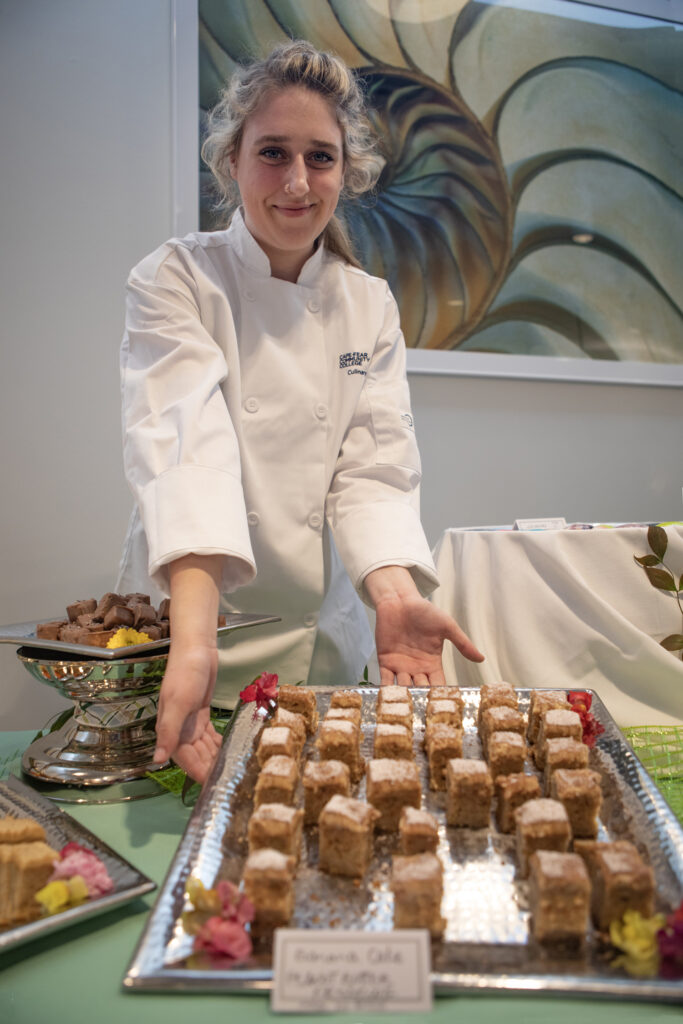

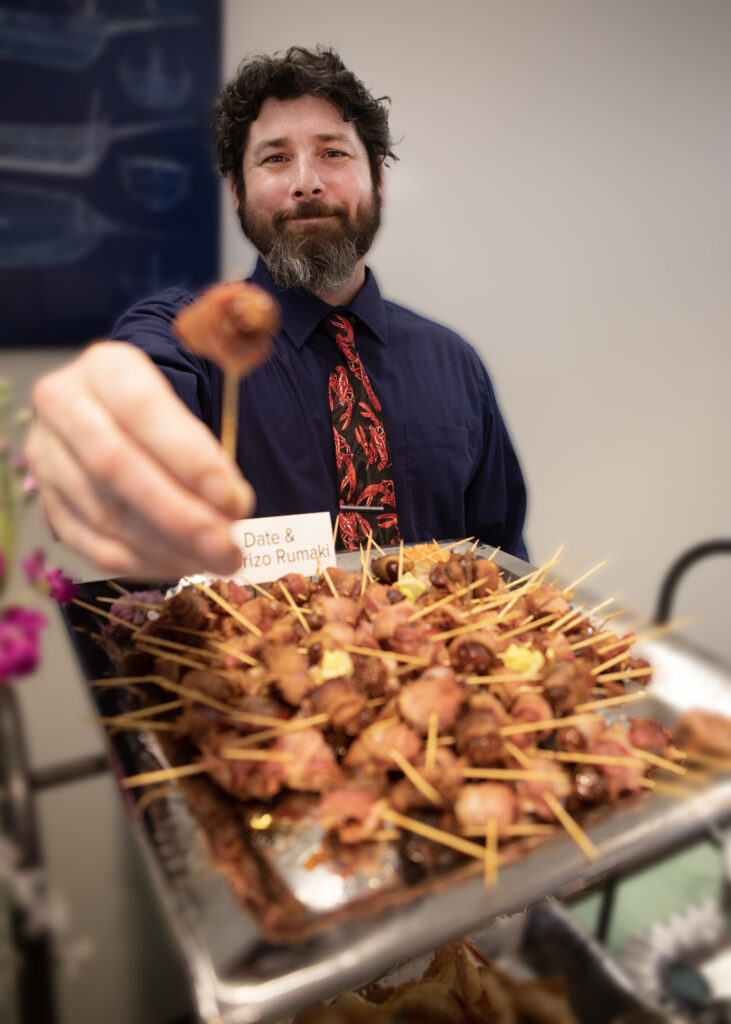
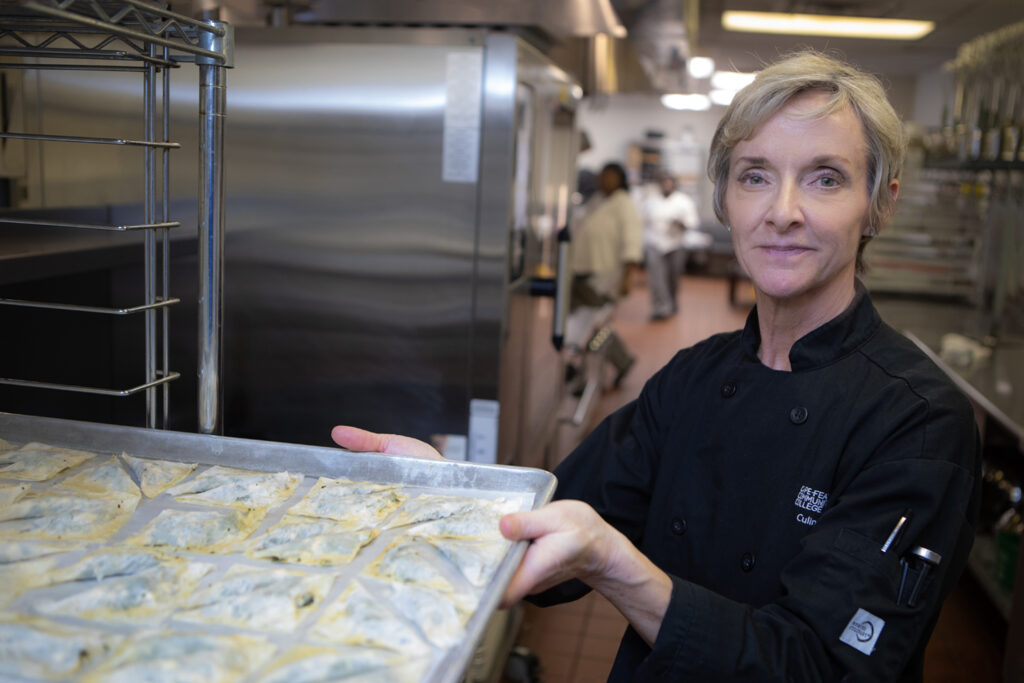
“Our Place restaurant is a testament to our commitment to providing a hands-on learning experience that benefits our culinary students and the community,” says CFCC President Jim Morton. “We are proud to offer a unique and affordable dining experience that satisfies the palate while supporting the growth of our students and the local economy.”
Reservations for lunch in the spring and dinner in the fall are only available on Wednesdays and fill up quickly. Lunch includes three courses for around $12 per person, while dinner includes four courses for around $15.
The spring session is already full but there is a wait list available. Reservations for the fall will open up in late August/early September. Part of the reason for the small number of openings is that CFCC does not want to compete with other restaurants.
“Cape Fear Community College is not only aimed at educating our students but also enriching the community we serve,” Morton says.
The price per meal only covers the supplies used to prepare it. Guests are asked to keep in mind that the students are paying for the learning experience. They are not always as good at time management as service industry professionals, dining may not always be appropriate for those on a tight schedule.
First-year student Andreah Anderson cooked in the U.S. Army for four years after graduating from Hoggard High School. She enrolled in the culinary program after completing her service. Her gregarious spirit was a perfect fit for the front of the house at the April 6, 2023, open house at Our Place, to showcase student’s work. But she says, “I’ll be in the back, next year.”
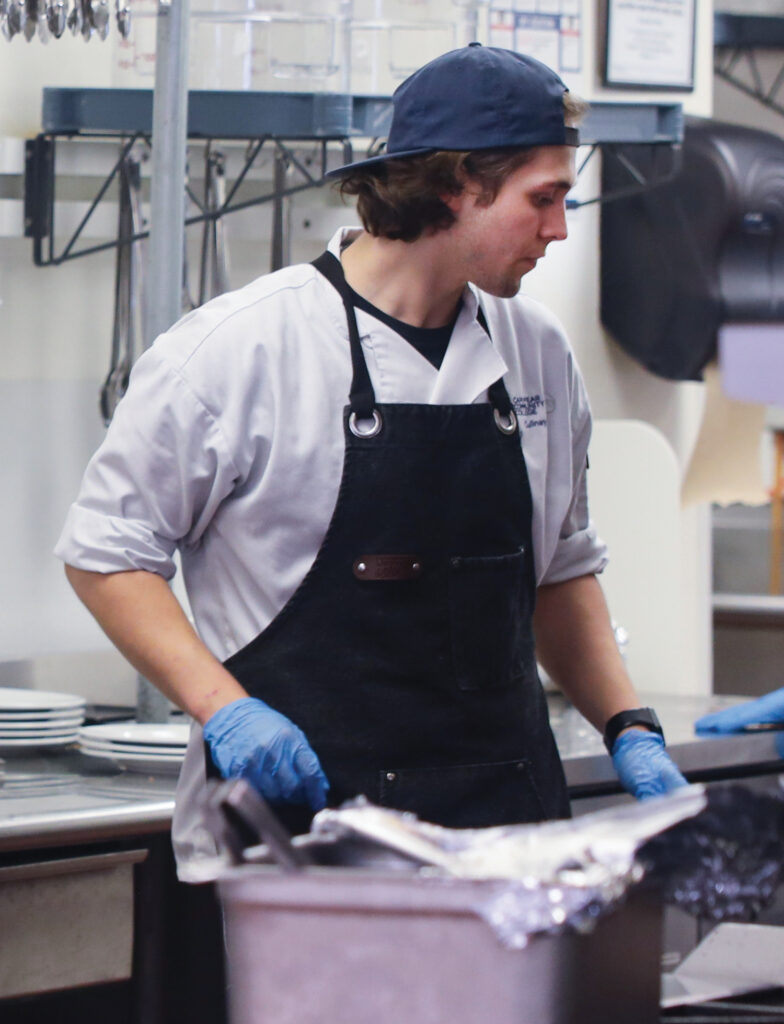
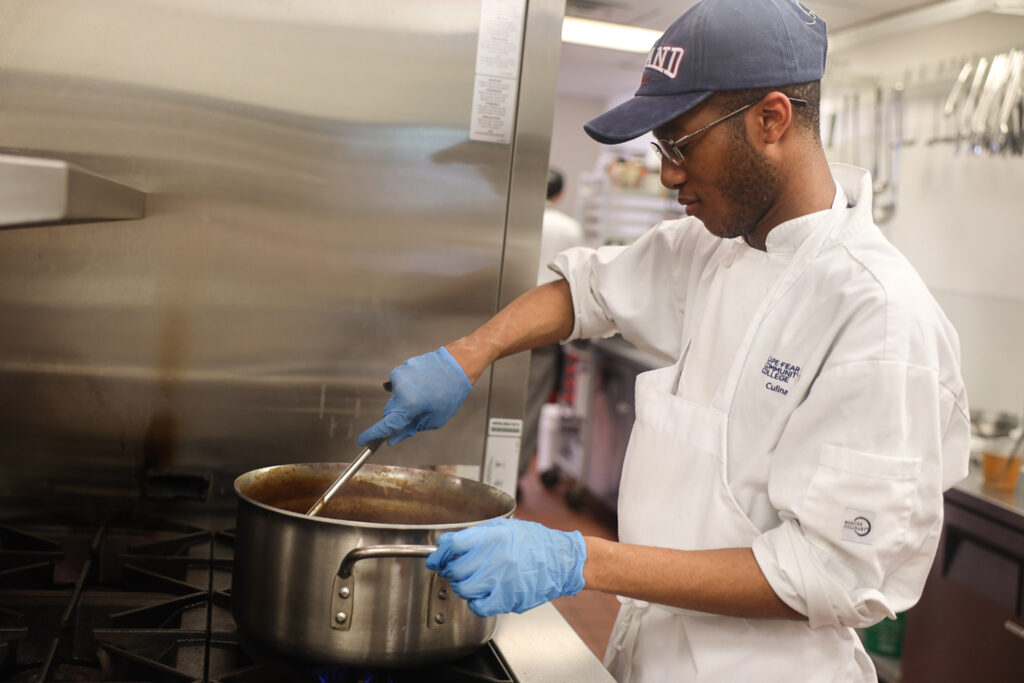
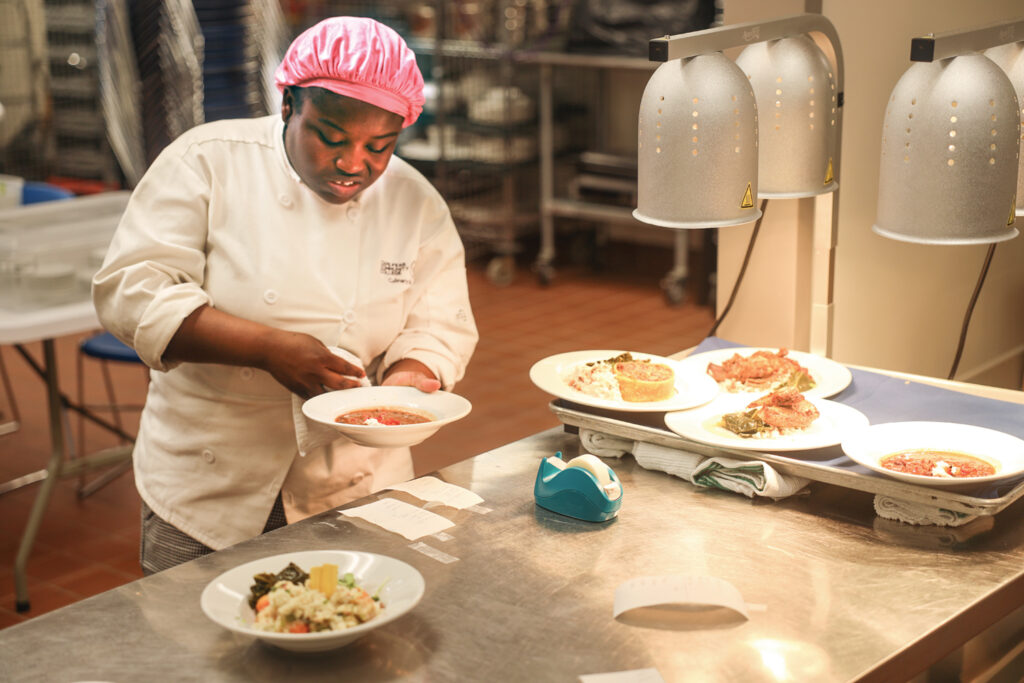
Students rotate through positions including server, dining room manager, cashier, chef of the day, grill, sauté cook and dishwasher. The menu is dictated by student learning goals. A few tasty items from menus past include tropical scallop ceviche, Jamaican jerked chicken, and Seafood Paw Paw, which is baked papaya stuffed with shrimp, grouper and crabmeat, seasoned with onions, peppers and tomatoes.
Graduates have a 100 percent employment rate, with many able to pick between multiple job opportunities. Some of the Culinary Arts graduates have become chefs at area restaurants, private clubs and institutional contractors such as Aramark, which provides food services for the University of North Carolina Wilmington. Graduates from the Hospitality Management program have gone on to become restaurant owners and operators, food and beverage directors, and even hotel general managers.
Although not a traditional apprenticeship since the students are not paid, the program has a similar functionality in that it allows students to develop the skills required for a career. Graduates don’t have to start at the bottom of the ladder when they enter the workforce.
Students can use the experience to figure out if the restaurant and hospitality industry is right for them while trying out a variety of roles, benefiting from support systems and the advice of knowledgeable professionals. Employers can benefit from having access to a larger pool of qualified candidates, which can help to increase productivity and operational efficiencies.
Along with helping to ensure that a restaurant never has to close again due to a labor shortage, programs such as the one at CFCC can help drive the local economy. Wilmington and many of the surrounding communities depend on tourism and the hospitality industry. That is unlikely to change, with the beaches and the downtown riverfront favorite destinations for visitors.
To support Our Place if reservations are not available, it is possible to donate to the college’s student clubs or the CFCC Foundation.

